- Home
- Conn Iggulden
Khan: Empire of Silver
Khan: Empire of Silver Read online
Empire of Silver
The Conqeror Series
Conn Iggulden
To Katie Espiner
Table of Contents
Cover Page
Title Page
PROLOGUE
PART ONE AD 1230
CHAPTER ONE
CHAPTER TWO
CHAPTER THREE
CHAPTER FOUR
CHAPTER FIVE
CHAPTER SIX
CHAPTER SEVEN
CHAPTER EIGHT
PART TWO AD 1232
CHAPTER NINE
CHAPTER TEN
CHAPTER ELEVEN
CHAPTER TWELVE
CHAPTER THIRTEEN
CHAPTER FOURTEEN
CHAPTER FIFTEEN
CHAPTER SIXTEEN
CHAPTER SEVENTEEN
CHAPTER EIGHTEEN
CHAPTER NINETEEN
CHAPTER TWENTY
CHAPTER TWENTY-ONE
CHAPTER TWENTY-TWO
CHAPTER TWENTY-THREE
CHAPTER TWENTY-FOUR
PART THREE AD 1240
CHAPTER TWENTY-FIVE
CHAPTER TWENTY-SIX
CHAPTER TWENTY-SEVEN
CHAPTER TWENTY-EIGHT
CHAPTER TWENTY-NINE
CHAPTER THIRTY
CHAPTER THIRTY-ONE
CHAPTER THIRTY-TWO
CHAPTER THIRTY-THREE
EPILOGUE
HISTORICAL NOTE
Also by Conn Iggulden
Copyright
About the Publisher
PROLOGUE
He trudged through a landscape of gers, like grubby shells on the shore of some ancient sea. Poverty was all around him: in the yellowing felt, patched and repaired endlessly over generations. Scrawny kid goats and sheep ran bleating around his feet as he approached his home. Batu stumbled over the animals, cursing as water slopped from the heavy buckets. He could smell pungent urine in the air, a sourness that had been missing from the breeze over the river. Batu frowned to himself at the thought of the day he had spent digging a toilet pit for his mother. He had been as excited as a child when he showed the results of his labour. She had merely shrugged, saying she was too old to go so far in the night, when good ground was all around her.
She was thirty-six years old, already broken by sickness and the years passing. Her teeth had rotted in her lower jaw and she walked like a woman twice her age, bent over and limping. Yet she was still strong enough to slap him on the rare occasions Batu mentioned his father. The last time had been just that morning, before he began the trek to the river.
At the door of her ger, he eased the buckets down and rubbed his sore hands, listening. Inside, he could hear her humming some old song from her youth and he smiled. Her anger would have vanished as quickly as always.
He was not afraid of her. In the last year, he had grown in height and strength to the point where he could have stopped every blow, but he did not. He bore them without understanding her bitterness. He knew he could have held her hands, but he did not want to see her weep, or worse to see her beg or barter a skin of airag to ease her misery. He hated those times, when she used the drink to hammer herself into oblivion. She told him then that he had his father’s face and that she could not bear to look at him. There had been many days when he had cleaned her himself, her arms flopping over his back, her flat breasts against his chest as he used a cloth and bucket to scrub the filth from her skin. He had sworn many times he would never touch airag himself. Her example made even the smell of it hard on his stomach. When its sweetness was combined with vomit, sweat and urine, it made him retch.
Batu looked up when he heard the horses, grateful for anything that would keep him outside a little longer. The group of riders was small by the standards of a tuman, barely twenty horsemen. To a boy brought up on the edges of the camp, it was a glorious sight for a morning, a different world.
The warriors rode with very straight backs and, from a distance, they seemed to radiate strength and authority. Batu envied them, even as he ached to be one of their number. Like any other boy of the gers, he knew that their red and black armour meant they were Ogedai’s own Guard, the elite warriors of the tumans. Stories of their battles were sung or chanted on feast days, as well as darker tales of betrayal and blood. Batu winced at the thought. His father featured in some of those, which prompted sidelong glances at his mother and her bastard son.
Batu hawked and spat on the ground at his feet. He could still remember when his mother’s ger had been of the finest white felt and gifts had arrived almost daily. He supposed she had once been beautiful, her skin fresh with youth, where now it was seamed and coarse. Those had been different days, before his father had betrayed the khan and been butchered for it like a lamb in the snow. Jochi. He spat again at the word, the name. If his father had bent to the will of the great khan, Batu thought he might have been one of the warriors in red and black, riding tall among the filthy gers. Instead, he was forgotten and his mother wept whenever he talked of joining a tuman.
Almost all the young men of his age had joined, except for those with injuries or defects of birth. His friend Zan was one, a mix-blood Chin who had been born with a sightless white eye. No one-eyed man could ever be an archer and the warriors had turned him away with kicks and laughter, telling him to tend his flocks. Batu had drunk airag for the first time with him that night and been sick for two days. The recruiters had not come for him either, not with the betrayer’s blood running in his veins. Batu had seen them out looking for strong lads, but when their gaze passed over him, they shrugged and turned away. He was as tall and strong as his father had been, but they did not want him.
With a shock, Batu realised the riders were not passing through. He watched as they stopped to speak to one of his mother’s neighbours and he took a sharp breath in amazement as the old man pointed in Batu’s direction. The horsemen trotted towards him and he stood rooted, watching as they came closer. He found he did not know what to do with his hands and folded them over his chest twice before letting them dangle. From inside the ger, he heard his mother calling some question, but he did not reply. He could not. He had seen the man riding at the head of the group.
There were no pictures in the poor gers, though one or two Chin paintings had found their way into the homes of the wealthiest families. Yet Batu had seen his father’s brother once. On a feast day years before, he had crept up close, peering between warriors for a sight of the great khan. Ogedai and Jochi had been with Genghis then and time had not faded the bright memory, among the most bitter-sweet in all his young years. It had been a glimpse of the life he might have had, before his father threw it all away for some petty squabble Batu did not even understand.
Ogedai rode bareheaded, in armour lacquered shining black. He wore his hair in the Chin style, as a heavy rope falling from a topknot on a bare, shaved scalp. Batu drank in every detail of the man as his mother’s voice called plaintively again from inside. He could see that the great khan’s son was looking directly at him and speaking, but Batu was tongue-tied, dumb. The yellow eyes were bright up close and he was lost in the realisation that he was staring at his uncle by blood.
‘Is he slow-witted?’ one of the warriors said. Batu shut his open mouth. ‘My lord Ogedai is speaking to you, boy. Are you deaf?’
Batu found himself flushing with great heat. He shook his head, suddenly irritated to have such men ride up to his mother’s ger. What would they think of the patched walls, the smell, the flies in the air? It was humiliating and his shock turned quickly to anger. Even then, he did not reply. Men like these had killed his father, his mother said. The life of a ragged son would mean little to them.
‘Have you no voice at all?’ Ogedai said. He was
smiling at something and Batu responded crookedly.
‘I have,’ he said. He saw one of the warriors reach down, but he did not expect a blow and he staggered a step as a mailed glove connected with the side of his head.
‘I have, my lord,’ the warrior said without heat.
Batu shrugged as he straightened up. His ear was burning, but he’d known worse.
‘I have a voice, my lord,’ he said, doing his best to remember the warrior’s face.
Ogedai discussed him as if he wasn’t present. ‘It wasn’t just a story then. I can see my brother in his face and he’s already as tall as my father. How old are you, boy?’
Batu stood very still, trying to collect himself. Some part of him had always wondered if his mother had been exaggerating his father’s position. To have it confirmed so casually was more than he could take in.
‘Fifteen years,’ he said. He saw the warrior begin to lean forward again and added ‘my lord’ quickly. The warrior leaned back in his saddle and nodded to him complacently.
Ogedai frowned. ‘You’re old to be starting out. Training should begin at seven or eight at the latest, if you’re ever to draw a good bow.’ He saw Batu’s confusion and smiled, pleased to be able to do such a thing. ‘Still, I will be watching you. Report to General Jebe tomorrow. He has his camp about a hundred miles to the north, near a village by a cliff. You can find it?’
‘I have no horse, my lord,’ Batu said.
Ogedai glanced at the warrior who had struck him and the man raised his eyes to heaven before dismounting. He passed the reins into Batu’s hands.
‘Can you ride at least?’ the warrior said.
Batu was awed as he took the reins and patted the muscular neck. He had never touched an animal as fine.
‘Yes. Yes, I can ride.’
‘Good. This mare is not your horse, understand? She will carry you to your post, but then you will take some old sway-back and return her to me.’
‘I don’t know your name,’ Batu said.
‘Alkhun, boy. Ask anyone in Karakorum and they’ll know me.’
‘The city?’ Batu asked. He had heard of the stone thing rising from the soil on the back of a million workers, but until then, he had not believed it.
‘More a camp than a city at the moment, though that is changing,’ Alkhun confirmed. ‘You can send the horse by the way station riders, but tell them to go easy with her. I’ll take any whip marks out of your hide. Oh, and welcome to the army, boy. My lord Ogedai has plans for you. Don’t disappoint him.’
PART ONE
AD 1230
CHAPTER ONE
The air swirled with marble dust that glittered as it caught the evening sun. Ogedai’s heart was full as he guided his horse down the main thoroughfare, taking in every sight and sound around him. There was a sense of urgency in the cacophony of hammer blows and shouted orders. The Mongol tumans had gathered outside the city. His generals, his people had been summoned there to see what two years of labour had created: a city in a wilderness, with the Orkhon river tamed and bent to his will.
Ogedai reined in for a moment to watch a group of workmen unload a cart. Nervous under his gaze, the labourers used ropes, pulleys and sheer numbers to manoeuvre blocks of white marble onto low sledges that could be dragged into the workshops. Each milky block was subtly veined in a light blue that pleased Ogedai. He owned the quarry that had birthed the stones, hundreds of miles to the east, just one of a thousand purchases he had made in the last years.
There was no doubt he had been extravagant, spending gold and silver as if it had no value. He smiled at the thought, wondering what his father would have made of the white city rising in the wilderness. Genghis had despised the anthills of humanity, but these were not the ancient stones and teeming streets of an enemy. This was new and it belonged to the nation.
There had never been a treasury like the one he had inherited, amassed from the wealth of China and Khwarezm, yet never spent by its khan. With the tribute from Yenking alone, Ogedai could have sheathed every new home in white marble or even jade if he had wanted. He had built a monument to his father on the plains, as well as a place where he himself could be khan. He had built a palace with a tower that rose above the city like a white sword, so that all men could see the nation had come far from simple gers and herds.
For his gold, a million men had come to work. They had crossed plains and deserts with just a few animals and tools, coming from as far off as Chin lands or the cities of Samarkand, Bukhara and Kabul. Masons and carpenters from Koryo had made the journey, called to the west by rumours of a new city being built on a river of coins. Bulgars brought stocks of rare clays, charcoal and hardwood in great caravans from their forests. The city filled with traders, builders, potters, foodsellers, thieves and scoundrels. Farmers scenting a profit brought their carts for days of travel, all for the strings of metal coins. Ogedai gave them gold and silver from the earth, melted and shaped. In return, they gave him a city, and he did not find it a bad bargain. For the present, they were the colourful crowds of his city, speaking a hundred tongues and cooking a thousand different foods and spices. Some of them would be allowed to stay, but he was not building it for them.
Ogedai saw green-handed dyers flatten themselves against the walls, their red turbans dipping in respect. His Guards cleared the way ahead, so the son of Genghis could ride almost in a dream. He had made this place from the camp of gers his father had known. He had made it real, in stone.
It still amazed him. He had not paid for women to travel with his workers, but they had come with their husbands and fathers. He had wondered for a time how he would establish the businesses every city needed to thrive, but traders had approached his chancellor, offering horses or more silver to lease new properties. The city was more than a simple collection of houses. Already it had a vitality of its own, far beyond his control.
Yet not completely. A quirk in the plans had created an area of small alleyways in the south of his city. Criminal gangs had begun to flourish there until Ogedai heard. He had ordered eight hundred buildings torn down, the whole area redesigned and rebuilt. His own Guard had supervised the hangings.
The street fell quiet as he passed, the labourers and their masters bowing their heads as they saw the man who held the power of life and death and gold over all of them. Ogedai took a deep breath of the dusty air, enjoying the taste of it on his tongue and the thought that he was literally breathing in his creation. Ahead, he could see the towers of his palace, crowned in a dome of gold beaten thinner than the paper of his scribes. It raised his spirits to see it, like sunlight trapped and held in his city.
The street widened as it grew before him, its stone gutters polished. That section had been finished months before and the bustling crowds of labourers fell behind. As Ogedai trotted on, he could not help glancing at the boundary walls that had so confused his Chin architects and labourers. Even from the low vantage point of a saddle, there were moments when he could see over them to the green plains beyond. The walls of Yenking had not saved that city from fire or siege, he knew. His walls were the warriors of the khan, the tribes who had brought a Chin emperor to his knees and razed a shah’s cities.
Already, Ogedai loved his creation, from the vast expanse of the central training ground, to the red-tiled roofs, the paved gutters, the temples and churches and mosques and markets and homes by the thousand, most still empty and waiting for life. Scraps of blue cloth fluttered in the plains wind on every corner, a tribute to the sky father above them all. In the south, green foothills and mountains stretched far away and the air was warm with dust as Ogedai rejoiced in Karakorum.
The twilight was deepening into a soft gloom as Ogedai handed his reins to a servant and strode up the steps to his palace. Before he entered, he looked back once more at the city straining to be born. He could smell fresh-turned earth and, over it, the fried food of the workmen on the evening air. He had not planned the herds of livestock in corrals beyond the walls,
or the squawking chickens sold on every corner. He thought of the wool market that had sprung up by the western gate. He should not have expected trade to halt simply because the city was unfinished. He had chosen a spot on an ancient traders’ road to give it life – and life had begun pouring in while whole streets, whole districts, were still piles of lumber, tile and stone.
As he looked into the setting sun, he smiled at the cooking fires on the plains surrounding the city. His people waited there, for him. His armies would be fed on rich mutton, dripping fat from the summer grass. It reminded him of his own hunger and he moistened his lips as he passed through a stone gate the equal of anything in a Chin city.
In the echoing hall beyond, he paused for a moment at his most extravagant gesture. A tree of solid silver stretched gracefully up to the arched ceiling, the centre point open to the sky like the ger of any herdsman. It had taken the silversmiths of Samarkand almost a year to cast and polish, but it served his purpose. Whoever entered his palace would see it and be staggered at the wealth it represented. Some would see an emblem for the silver people, the Mongol tribes who had become a nation. Those with more wisdom would see that the Mongols cared so little for silver that they used it as a casting metal.
Ogedai let his hand slide down the bole of the tree, feeling the metal chill his fingers. The spreading branches reached out in a parody of life, gleaming like a white birch in moonlight. Ogedai nodded to himself. He stretched his back as lamps were lit by slaves and servants all around him, throwing black shadows and making the evening seem suddenly darker outside.
He heard hurrying footsteps and saw his manservant, Baras’aghur, approaching. Ogedai winced at the man’s keen expression and the bundle of papers under his arm.
‘After I have eaten, Baras. It has been a long day.’
‘Very well, my lord, but you have a visitor: your uncle. Shall I tell him to wait on your pleasure?’
Ogedai paused in the act of unbuckling his sword belt. All three of his uncles had come to the plains around Karakorum at his order, gathering their tumans in great camps. He had forbidden them all from entering the city and he wondered who would have disobeyed him. He suspected it would be Khasar, who regarded orders and laws as tools for other men rather than himself.

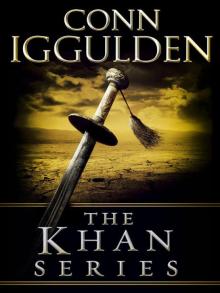 The Khan Series 5-Book Bundle
The Khan Series 5-Book Bundle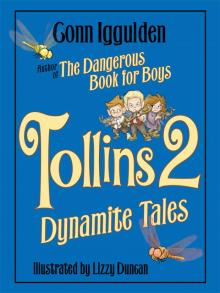 Tollins 2: Dynamite Tales
Tollins 2: Dynamite Tales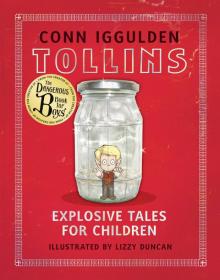 Tollins: Explosive Tales for Children
Tollins: Explosive Tales for Children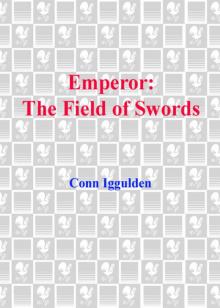 The Field of Swords
The Field of Swords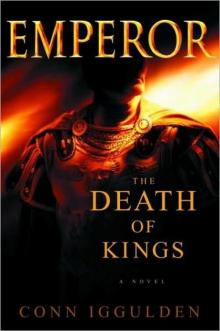 The Death of Kings
The Death of Kings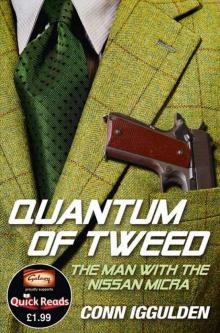 Quantum of Tweed: The Man With the Nissan Micra
Quantum of Tweed: The Man With the Nissan Micra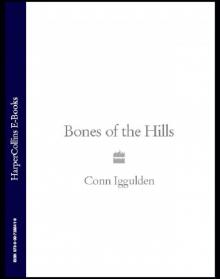 Bones of the Hills
Bones of the Hills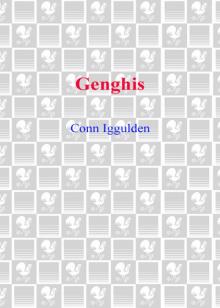 Genghis: Birth of an Empire
Genghis: Birth of an Empire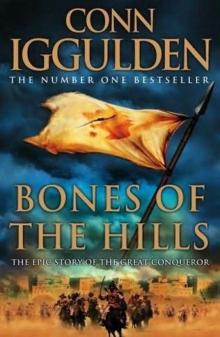 The Gates of Rome
The Gates of Rome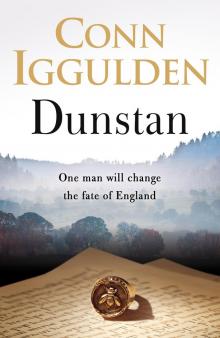 Dunstan
Dunstan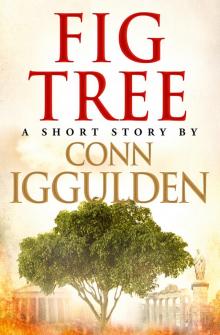 Fig Tree
Fig Tree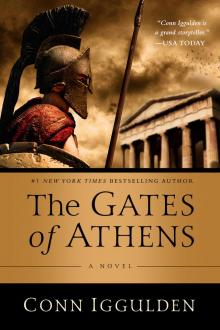 The Gates of Athens
The Gates of Athens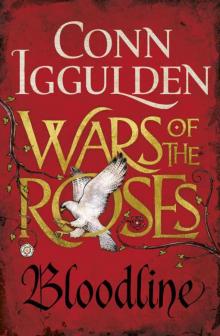 Stormbird
Stormbird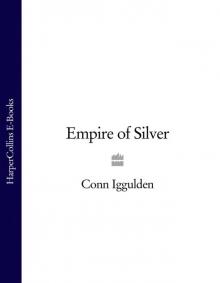 Khan: Empire of Silver
Khan: Empire of Silver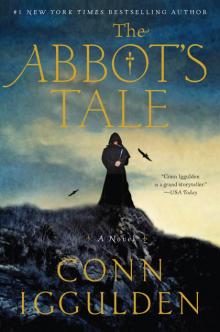 The Abbot's Tale
The Abbot's Tale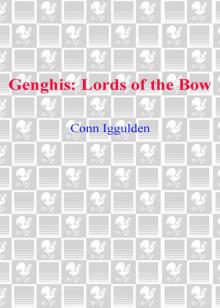 Gengis: Lords of the Bow
Gengis: Lords of the Bow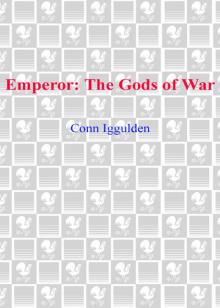 The Gods of War
The Gods of War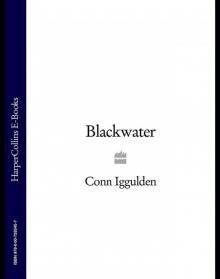 Blackwater
Blackwater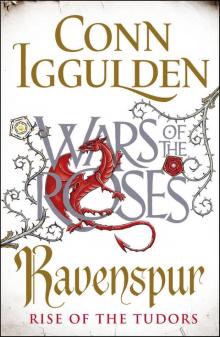 Ravenspur: Rise of the Tudors
Ravenspur: Rise of the Tudors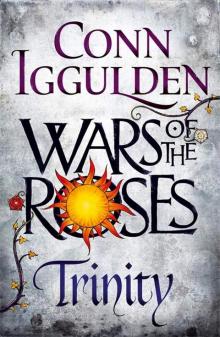 Wars of the Roses: Trinity (War of the Roses Book 2)
Wars of the Roses: Trinity (War of the Roses Book 2)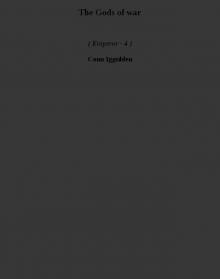 The Gods of war e-4
The Gods of war e-4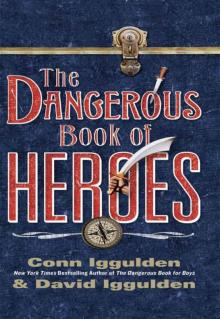 The Dangerous Book of Heroes
The Dangerous Book of Heroes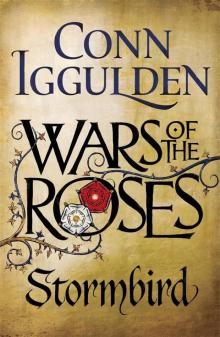 Stormbird wotr-1
Stormbird wotr-1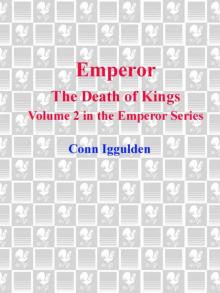 Emperor: The Death of Kings
Emperor: The Death of Kings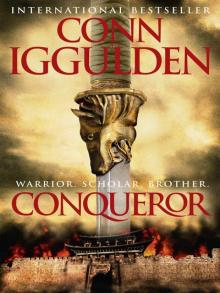 Conqueror (2011) c-5
Conqueror (2011) c-5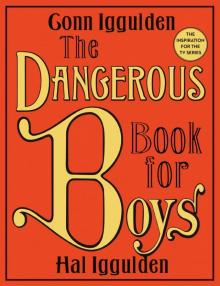 The Dangerous Book for Boys
The Dangerous Book for Boys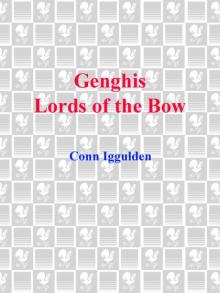 Genghis Lords of the Bow
Genghis Lords of the Bow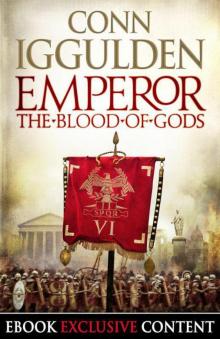 Emperor: The Blood of Gods (Special Edition) (Emperor Series, Book 5)
Emperor: The Blood of Gods (Special Edition) (Emperor Series, Book 5)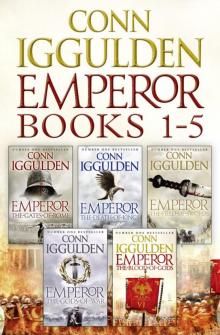 The Emperor Series: Books 1-5
The Emperor Series: Books 1-5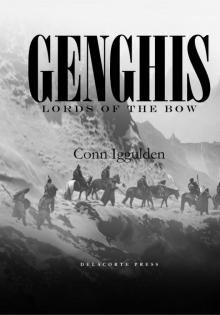 Lords of the Bow c-2
Lords of the Bow c-2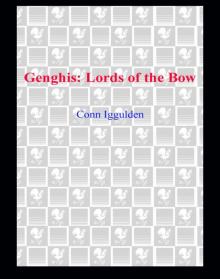 Lords of the Bow
Lords of the Bow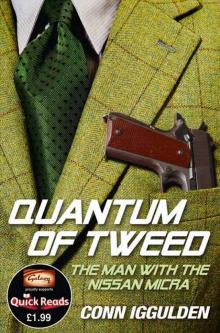 Quantum of Tweed
Quantum of Tweed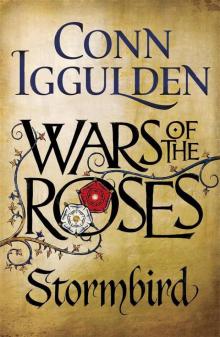 Wars of the Roses 01 - Stormbird
Wars of the Roses 01 - Stormbird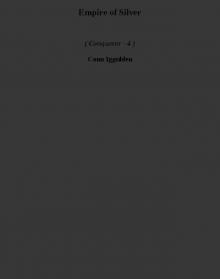 Empire of Silver c-4
Empire of Silver c-4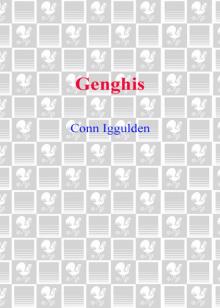 Birth of an Empire
Birth of an Empire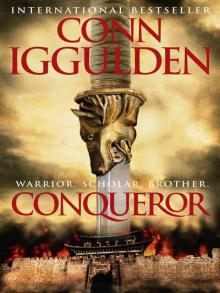 Conqueror (2011)
Conqueror (2011)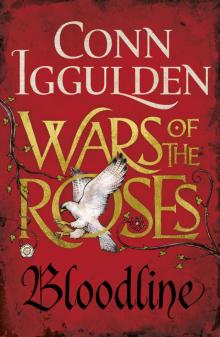 Wars of the Roses: Bloodline: Book 3 (The Wars of the Roses)
Wars of the Roses: Bloodline: Book 3 (The Wars of the Roses)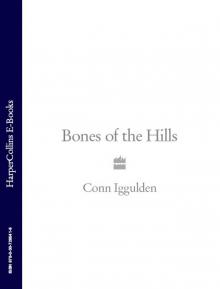 Bones Of the Hills c-3
Bones Of the Hills c-3 Empire of Silver
Empire of Silver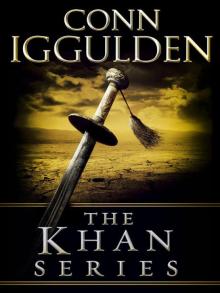 The Khan Series 5-Book Bundle: Genghis: Birth of an Empire, Genghis: Bones of the Hills, Genghis: Lords of the Bow, Khan: Empire of Silver, Conqueror
The Khan Series 5-Book Bundle: Genghis: Birth of an Empire, Genghis: Bones of the Hills, Genghis: Lords of the Bow, Khan: Empire of Silver, Conqueror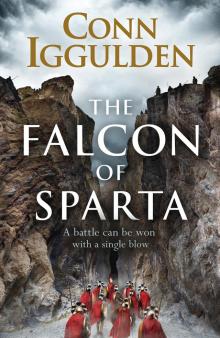 The Falcon of Sparta
The Falcon of Sparta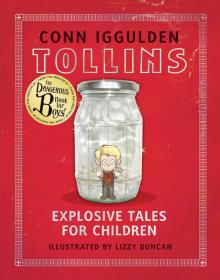 Explosive Tales for Children
Explosive Tales for Children